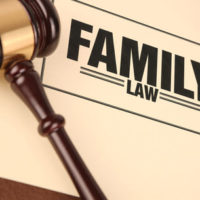
Separation and Divorce: Helpful Tips for a Happy Holiday Season
The holiday season, a time traditionally associated with joy, togetherness, and celebration, can become a daunting ordeal for those navigating the sometimes turbulent waters of divorce, parenting, and visitation.
In the midst of twinkling lights and festive cheer, some parents find themselves grappling with a complex array of emotions, occasionally including the “holiday blues.”
That’s entirely normal and understandable.
Even in the best circumstances, the holidays can be challenging.
Divorce is a life-altering journey, and when combined with the responsibilities of co-parenting, the challenges can feel overwhelming.
Amid any swirling uncertainty, hope and empowerment can be found – Bill Powers, Divorce Attorney
This post seeks to shed light on the poignant subject of divorce, visitation, and co-parenting, offering some practical tips during the holiday season.
Join us as we explore the transformative power of resilience, compassion, and effective co-parenting strategies.
Our goal is to encourage harmonious and memorable holiday experiences.
Consider Your Personal Well-Being
It’s smart for parents to consider their own needs and mental health during and after a divorce.
Remember that taking care of yourself is not selfish and may, in fact, be a healthy aspect of being the best parent you can be – Bill Powers, Divorce Lawyer Charlotte NC
Seeking support from friends, family, or a therapist may provide valuable outlets for processing emotions and stress.
Divorce can bring about feelings of guilt, especially when it involves children.
It’s helpful to remember that legal separation and divorce are complex decisions, and feeling guilty is an understandable (and very human) part of the process.
Allow yourself to let go of that guilt and focus on creating a positive environment for both you and your children, which is more important in the long run.
Rather than dwelling on the challenges of divorce, try to focus on the positive aspects and newfound freedoms.
Understand that spending some time away from your children can provide you with opportunities for personal growth, self-care, and pursuing your own interests.
Love without pressure
When you do spend time with your children, make it enjoyable without pressuring them.
Let them know that your time together is about creating positive memories, not about expectations or demands.
This approach helps foster a healthy parent-child relationship post-separation and divorce.
Remember that children are resilient, and they can adapt to new family dynamics.
Embrace now
Savor the moments you have with your kids, and instead of worrying about how things used to be, focus on creating new traditions and experiences that will strengthen your bond. 
Co-parenting can be challenging, but it’s crucial to maintain a respectful and open line of communication with your ex-partner.
Keep the lines of communication open to ensure that your children receive consistent messages and support from both parents.
Flexibility is key when it comes to co-parenting.
Be willing to adjust schedules and arrangements to accommodate your children’s needs and changes in their lives. Showing adaptability and cooperation will make the process smoother for everyone involved.
Celebrate the uniqueness of your role as a parent.
Embrace the opportunities to nurture, guide, and influence your children in your own special way.
Your relationship with them is valuable and irreplaceable.
Quality over Quantity
Emphasize quality over quantity in your time with your children.
Engage in activities that promote bonding and create lasting memories.
These meaningful interactions are what children will cherish most.
Set aside time for self-care and personal growth.
Pursuing your own interests and hobbies can be fulfilling and serve as a positive example for your children on the importance of personal development.
It’s OK to ask for help
Don’t be afraid to seek support from support groups or professional counselors.
They can provide valuable insights, coping strategies, and emotional guidance.
Remember that healing takes time, and it’s okay to have moments of sadness or frustration. 
Allow yourself to grieve the loss of your previous family structure while embracing the possibilities of a brighter future for you and your children.
Ultimately, focusing on your well-being, letting go of guilt, celebrating your newfound freedoms, and creating positive, pressure-free moments with your children are steps toward building a fulfilling life post-divorce.
You have the capacity to navigate this journey with resilience and grace, ensuring a bright future for both you and your children.
Divorce Quick Tips:
- Always prioritize the best interests of the child when making scheduling decisions. They may want to see both parents and sides of the family. Listen to them.
- Consider factors such as the child’s age, preferences, and any special traditions they may have.
- Minimize disruption to the child’s routine and create a sense of stability during the holiday season.
- Technology can be a valuable tool for co-parents dealing with scheduling conflicts. Shared online calendars and messaging apps can help co-parents stay organized and coordinate visitation plans efficiently. Digital tools can reduce misunderstandings and streamline communication.
- In cases where conflicts persist despite efforts to resolve them amicably, consider involving a mediator, family counselor, or family law attorney.
Mediation can help facilitate discussions and reach constructive outcomes while minimizing stress and tension.
Legal support may be helpful, with family law attorneys assisting in aligning arrangements consistent with existing legal agreements, Court Orders, and prioritizing the child’s best interests.
While scheduling conflicts during the holiday season can be challenging for divorced and separated parents, effective communication, compromise, and a focus on the child’s well-being are key to finding workable solutions.
By working together, parents can create a harmonious holiday schedule that allows their children to enjoy the season with both parents in a positive and supportive atmosphere.
Scheduling After Separation or Divorce: Smart Ways to Avoid Conflicts
Dealing with scheduling conflicts during the holidays can be a challenging task for separated and divorced parents.
The desire to spend quality time with children on special occasions like Thanksgiving, Hanukkah, and Christmas can lead to conflicts over who gets to have the children and when.
Clearly, that can add stress and tension to an already emotionally charged time of year.
One crucial approach to avoid scheduling conflicts is open and honest communication between co-parents – Bill Powers, Charlotte Divorce Lawyer
Initiating conversations about holiday plans well in advance of the season can allow for ample time for discussion and negotiation.
During these discussions, both parents can express their desires and priorities for specific holidays.
Creating a holiday calendar collaboratively can also be an effective strategy.
Any calendar should outline where the children will be on specific dates, and it’s important to clearly define which holidays are most important to each parent.
A willingness to compromise on less significant holidays or times to ensure fairness and balance in the schedule is a good idea.
Remember, you define what is ‘quality time’ with your children, not the calendar or others’ expectations – Bill Powers, Family Law Attorney in Charlotte NC
Alternating holiday custody arrangements each year is a strategy the Court (the Judge) and parenting agreements may employ to help mitigate scheduling conflicts.
For instance, if one parent spends Thanksgiving with the children this year, they can plan to switch roles with the other co-parent for the next year.
This way, both parents get the opportunity to create special holiday memories with their children.
Likewise, the parent who has the children for Thanksgiving may not have them for Christmas or Hanukkah during that same year.
This balanced approach ensures that both parents share in the joy of celebrating significant holidays with their children, fostering a sense of fairness and inclusivity.
In cases where full-day arrangements are not feasible, consider planning for half-day visits.
This allows both parents to share in the holiday festivities and spend meaningful time with their children.
The key is the quality of the time you spend with your children, not necessarily the time of day or even the day – Bill Powers, Charlotte Child Custody Lawyer
Half-day arrangements can be especially beneficial for children who want to see both parents on the same day.
Helpful Information about Divorce in North Carolina
Considering Divorce? Here’s Where to Start
The North Carolina Divorce, Alimony & Child Support Law
What you need to know about Child Custody in North Carolina
Navigating the Delicate Timing of Separation and Divorce
Separation, Divorce and Your Child: Academic Performance
Why hiring a divorce attorney is so important
Learn More
Why hiring a divorce attorney is so important
Is there really such a thing as a “simple divorce?”
No one enters into a marriage expecting it to end in divorce, but unfortunately, that is sometimes the case.
If you are considering separation or divorce, it is important to understand that this is not a decision to be taken lightly.
There are many things to consider, and hiring a qualified divorce attorney is one of the most important decisions you will make.
In this blog post, we will discuss some of the reasons why it is so important to have an experienced attorney on your side during this difficult time.
Can you serve as your own attorney? Do you really need divorce lawyer?
We think the answer is almost always yes; it’s a very good idea to hire an attorney.
Here are four reasons why hiring a divorce lawyer is so important.
Reason One: Asset Division
In many divorces, the biggest asset is the family home. Other assets may include retirement savings, investments, and vehicles. An experienced divorce attorney can help make sure that these assets are divided fairly (consistent with the NC divorce laws) between the two spouses.
Reason Two: Child Custody and Support
If there are children involved in the divorce, custody and support can be major issues. A good divorce lawyer can help make sure that the child custody arrangement is in the best interests of the child and that child support payments are fair.
Settlement Negotiations and Collaborative Divorce
Reason Three: Alimony/Spousal Support
In some divorces, one spouse may be ordered to pay alimony (also called spousal support) to the other. The amount and duration of alimony can be difficult to determine, but an experienced divorce lawyer will explain your legal rights and legal obligations, as the case may be.
Reason Four: Protection from an Abusive Spouse
Unfortunately, in some cases, one spouse may be abusive towards the other. If this is the case, we think it’s imperative to have a divorce lawyer on your side who has substantial experience handling DV Domestic Violence cases in both criminal court and DVPO / Chapter 50B civil court in Charlotte.
Hiring a divorce attorney is important because they can help make sure you get what you’re entitled to under the law. If you are considering a divorce, we encourage you to contact an experienced Charlotte divorce lawyer today.
The team at Powers Law Firm PA is here to help guide you through this difficult time. Contact us online or give us a call at (704)-342-4357 to schedule your initial consultation with our firm.
Our attorneys understand the unique challenges that come with a divorce, and we are here to help ensure that your rights are protected every step of the way. Let us put our experience to work for you. Call today!
What is ordinarily involved with a divorce?
There are many things to think about when going through a divorce: children, support, property division, and more. That can add up to a lot of emotional distress. Your divorce attorney will be able to help you with all of these things and more.
One of the most important things to consider when getting divorced is what will happen with your children. If you have minor children, you will likely need to come up with a parenting plan that outlines how your kids will spend time with each parent and what the financial arrangements will be.
Your attorney can help you create a parenting plan that is in the best interests of your children.
Another important thing to consider when getting divorced is how your assets will be divided. You and your spouse likely have many assets, including your home, savings accounts, retirement accounts, and more. You will need to come to an agreement on who gets what.
Equitable Distribution FAQs in North Carolina
Your attorney can help you negotiate a fair property division agreement with your spouse.
If you are getting divorced, you likely have many questions about the process. We think the best way to get answers to your questions is to consult with an experienced divorce attorney. Schedule a consultation with an attorney at Powers Law Firm today to learn more about how we can help you through your divorce.
The Charlotte Divorce Law Firm, Powers Law Firm PA, is here to help guide you through this difficult time. Contact us now to schedule a consultation.
What is Legal Separation in North Carolina?
Big picture, legal separation refers to when the couple remains legally married but lives apart. In some states, the couple must live apart for a short period of time before they can file for a divorce.
In North Carolina, the parties must be separated for one year before a Family Court Judge can grant a divorce.
If you are considering filing for a legal separation, it is important to consult with an experienced family law attorney who can explain the NC Family laws and help you navigate the process.
What Are the Grounds for Divorce?
The grounds, or reasons, for divorce vary by state.
Some states grounds for divorce due to irreconcilable differences or incompatibility.
In North Carolina, there are different grounds for divorce, which are listed in Article 1 of NCGS Chapter 50 – Divorce and Alimony.
They include things like:
- Incurable Insanity – Grounds for Absolute Divorce – N.C.G.S. § 50-5.1
- Living Separate and Apart for one year (either Plaintiff or Defendant have resided in NC for a period of six (6) months – N.C.G.S. § 50-6
- Divorce from Bed and Board – N.C.G.S. § 50-7
What Happens if We Cannot Agree on the Terms of Our Divorce?
If you and your spouse cannot agree on the terms of your divorce, then you may have to go to court and let a judge decide. This is called litigation.
It’s important to understand, prior to taking some divorce proceedings to trial in North Carolina, there are instances when mediation is mandatory. For example, parents (and other legally interested parties) making a claim for custody of a child or children must attend mediation unless the Judge “waives” mediation.
A waiver is not automatic and therefore should not be assumed as 100% guaranteed to happen.
It requires the filing of a special kind of Motion known by divorce lawyers as a Motion and Order to Waive Custody Mediation.
Another example of when mediation takes place is if the spouses cannot agree upon property division. Mediation is required for Equitable Distribution.
The majority of divorces are settled out of court through mediation or negotiation or collaborative divorce, but some cases do end up going to trial. If your case does go to trial, it will be important to have an experienced courtroom lawyer with practical trial skills by your side to help you navigate the process.
Divorce a Better Way: Collaborative Divorce
If you are considering filing for a divorce in North Carolina, or if you have already been served with divorce papers, divorce attorneys can explain the NC Family laws and help you navigate the process.
The attorneys at Powers Law Firm PA help clients with divorce and family law cases, including property division, alimony, child custody and support, post-separation support, and more. Contact us today to schedule a consultation to discuss your case.
Can the parties waive the period of legal separation in North Carolina?
No, the parties can NOT waive the one-year period of separation in North Carolina even if they agree to do so in writing.
What are some common mistakes people make during their divorce?
One of the most common mistakes people make during their divorce is not being prepared. This can mean not having all the necessary paperwork in order or not knowing what to expect from the divorce process.
Another common mistake is trying to do too much on their own and not seeking help from a divorce lawyer. The divorce process is complex. It can be confusing, especially if you don’t have much experience dealing with the legal system. We think it’s imperative to have someone on your side who understands the law and who is looking out for your best interests.
Tips from a Charlotte Divorce Lawyer
Finally, people often make the mistake of assuming that they will get everything they want in the divorce settlement. This is rarely the case, and it’s important to be realistic about what you can expect to receive.
Another common mistake people make during their divorce is failing to disclose all of their assets. It is important to be honest about all of your assets and debts during the divorce process.
If you are considering filing for a divorce, or if you have already been served with divorce papers, contact a reputable divorce lawyer. The experienced divorce attorneys at Powers Law Firm PA provide legal guidance and can explain the court proceedings.
Learn More
The Legalities of Same-Sex Marriage in North Carolina
 The applicability of federal law in a country where each state is its own sovereign can cause some complexity for issues such as same-sex marriage. Marriage is under the ambit of state law, however, where the federal law interprets state law as a violation of constitutional rights, states must yield to the federal interpretation of the law. Same-sex couples seeking to marry have to gain a clear understanding of the marriage laws governing their jurisdiction. North Carolina is an example of a state where some complexity exists.
The applicability of federal law in a country where each state is its own sovereign can cause some complexity for issues such as same-sex marriage. Marriage is under the ambit of state law, however, where the federal law interprets state law as a violation of constitutional rights, states must yield to the federal interpretation of the law. Same-sex couples seeking to marry have to gain a clear understanding of the marriage laws governing their jurisdiction. North Carolina is an example of a state where some complexity exists.
Same-Sex Marriage Under Federal Law
To fully understand state law, individuals must understand its relationship to the federal law. On June 26, 2015, same-sex marriage was pronounced as legal nationwide in the landmark case of Obergefell v. Hodges. In that case, the Supreme Court of the United States held that same-sex marriage was a guarantee under the Due Process Clause and Equal Protection Clause of the Fourteenth Amendment of the Constitution. With this ruling, same-sex marriages were recognized in all 50 states and Washington D.C. As of today, about seven counties in Texas and Alabama do not issue marriage licenses to same-sex couples.
North Carolina’s Same-Sex Marriage Laws
In North Carolina, same-sex marriage has been recognized since 2014 after the ruling in General Synod v. Cooper. In that case, the U.S. District Court held that a denial of marriage rights to same-sex couples in North Carolina was unconstitutional. Therefore, North Carolina permitted same-sex marriage before the Supreme Court handed down the federal ruling in Obergefell v. Hodges. Prior to the Cooper ruling, North Carolina had a statutory ban on same-sex marriage that passed in 1996. In 2012, the North Carolina legislature amended the state Constitution with marriage defined as a union between man and woman. After the ruling in Cooper and Obergefell, the 2012 statutory pronouncement is no longer applicable in North Carolina. It is important to note that North Carolina recognized (and still recognizes) domestic partnerships between same-sex couples.
Recent State Bill Introduced Against Same-Sex Marriages
On April 11, 2017, the North Carolina House of Representatives introduced a bill entitled the “Uphold Historical Marriage Act” also known as House Bill 780. The bill sought to recognize marriage as only between a man and woman as pronounced in the 2012 amendment to the state constitution. The bill directly undercuts the ruling in Obergefell, which gives credence to opponents who call the bill “null and void.” The bill has not passed the North Carolina state legislature as of March 2018. Presently, same-sex marriage remains lawful in North Carolina.
Charlotte Same-Sex Marriage Attorneys
Although same-sex marriage laws are permitted in the U.S., some couples still face challenges when it comes to divorce and child custody. Similarly, there is some complexity when same-sex couples that have been cohabitating for years without marrying seek to have their relationship recognized under the law. The experienced lawyers at Powers Landreth PLLC will advise you on your same-sex marital matters to prepare you for the road ahead. Contact us now for a consultation.
Resources:
supremecourt.gov/opinions/14pdf/14-556_3204.pdf
altoday.com/archives/17555-two-years-later-7-alabama-counties-still-not-issuing-marriage-licences-sex-couples
ncleg.net/Sessions/2017/Bills/House/PDF/H780v0.pdf
washingtonpost.com/news/post-nation/wp/2017/04/12/north-carolina-bill-banning-same-sex-marriage-again-wont-be-heard-house-speaker-says/?utm_term=.d1bbdd1ed76f
clearinghouse.net/chDocs/public/PB-NC-0006-0011.pdf
Learn More
Why Did I Get Married? Annulment Basics in North Carolina
 Annulment is the legal procedure that declares a marriage void from its inception. The marriage is deemed as illegal when it was pronounced, therefore, the effect of an annulment is retroactive invalidity. Annulment is granted on varying grounds depending on the state at issue including insanity, bigamy and incest.
Annulment is the legal procedure that declares a marriage void from its inception. The marriage is deemed as illegal when it was pronounced, therefore, the effect of an annulment is retroactive invalidity. Annulment is granted on varying grounds depending on the state at issue including insanity, bigamy and incest.
Voidable vs. Void Marriages
Under North Carolina law, a marriage is that void is subject to annulment. In the alternative, a marriage that is voidable is a marriage that is entered into with a major defect including: (1) incest, (2) false pretenses, (3) impotence, (4) lack of sound mind, and (5) one of the spouses being under the age of sixteen. All of these instances are grounds that the court will consider as voidable. Unlike void marriages, a court can deem a voidable marriage as valid depending on the circumstances of the case. For example, in the case of false pretenses, if you remain married after you discover that your spouse was never pregnant (as was communicated before the marriage), then a court can find validity under the rationale that the pregnancy was not the actual reason for seeking the annulment.
One Annulment Ground in North Carolina
In North Carolina, the only ground for an annulment or void marriage is bigamy. Bigamy is the illegal act of marrying an individual who is already lawfully married to another individual. People who enter into bigamous marriages have entered into a void marriage per the law in all U.S. states. Bigamy, unlike the voidable grounds, is immediately void and the marriage is never valid under law.
How to Get an Annulment in North Carolina
Individuals seeking an annulment must file a claim for absolute annulment. The plaintiff spouse must file the claim in the county in which the defendant spouse resides. The more specific evidence and firsthand witness testimony the plaintiff shows, the more likely the annulment will be granted. With bigamy being the only ground for an annulment, plaintiffs are better served by providing solid evidence of the defendant’s marriage including marriage certificates, photos, or proof of children born of the first marriage.
Effect of a Void Marriage
In divorce proceedings, the individuals are considered as divorced after a divorce decree is issued. Under the law, the parties where married and the decree is the legal recognition of the dissolution of the marriage. After an annulment is granted, the marriage is deemed as to have never existed. You were and are currently single. However, children born to an annulled marriage are considered children of a valid marriage for the purposes of child support and parenting. Unlike divorce, property distribution and spousal support are not available in annulment proceedings.
Charlotte Annulment Attorneys
It is important to involve an experienced attorney to guide you through filing for an annulment or ending your voidable marriage. Annulment and voidable marriages are complex issues, but the Charlotte family law lawyers at Powers Landreth PLLC are ready to simplify the process and provide you with ardent representation. Timely filing of these claims will dictate your success. Contact us now for a consultation.
Resource:
ncleg.net/EnactedLegislation/Statutes/HTML/BySection/Chapter_51/GS_51-3.html
Learn More
What You Need to Know About Domestic Violence Protective Orders
 In North Carolina, a domestic violence protective order (DPVO) is a civil relief that is filed in district court. It permits the court to order an alleged abuser to do or refrain from doing certain acts as it relates to the plaintiff. Obtaining a DPVO requires the plaintiff to show that domestic abuse is being committed. In addition, the plaintiff must show a present or past personal relationship between themselves and the alleged abuser (among other requirements). The process for obtaining a DVPO has been streamlined for average citizens to take advantage of it to protect themselves.
In North Carolina, a domestic violence protective order (DPVO) is a civil relief that is filed in district court. It permits the court to order an alleged abuser to do or refrain from doing certain acts as it relates to the plaintiff. Obtaining a DPVO requires the plaintiff to show that domestic abuse is being committed. In addition, the plaintiff must show a present or past personal relationship between themselves and the alleged abuser (among other requirements). The process for obtaining a DVPO has been streamlined for average citizens to take advantage of it to protect themselves.
How to Obtain a DVPO
A plaintiff must go to their district court to file DVPO forms. If the plaintiff requires filing outside of business hours, they may go to a magistrate. If the plaintiff requires an emergency filing, then the DVPO may advance as an ex parte filing. The ex parte filing will apply for a temporary order, and will not require the presence of the alleged abuser when the temporary order is issued. The DVPO also provides for temporary custody by the plaintiff if there are children involved. In addition, the alleged abuser must surrender all firearms. There are no fees associated with filing a DVPO in North Carolina. After filing for the DVPO, the plaintiff must take the forms to the sheriff’s department. In turn, the sheriff’s department will serve the defendant with the complaint and a summons to appear in court. Thereafter, a hearing is scheduled on the merits of the case where the plaintiff must show evidence that the alleged abusive acts were actually committed.
DVPO Requirements
To obtain a DVPO, the plaintiff must show domestic violence from an individual with whom the plaintiff has a personal relationship. In North Carolina, domestic violence is defined as attempts to cause bodily injury; intentionally causing injury; imminent fear of serious bodily injury; continued harassment that causes emotional distress, etc. These actions include those that are inflicted on a minor. In addition, teenagers who are under the age of 18 may have their parents or guardian file the DVPO on their behalf. The personal relationship requirement is widely construed to include spousal, familial, roommate and dating relationships.
The Effect of a Standing DPVO
The effect of a standing DVPO is wide-reaching. A judge can order the defendant to do certain acts and/or refrain from doing certain acts, including:
- Order the defendant to refrain from assaults, threats and harassment
- Require that law enforcement remove the defendant from a shared home
- Order the defendant to stay away from the plaintiff’s home, school or place of work
- Order the defendant to make support payments
- Order the defendant to forfeit any firearms or other weapons
- Any such order as the judge may see fit for the situation
North Carolina Domestic Violence Lawyers
Domestic violence is a serious matter. To be sure, these matters are some of the most volatile legal issues in the realm of family law. The attorneys at Powers Landreth PLLC have years of experience dealing with North Carolina domestic violence laws and DVPO issues. We know that keeping you and your family protected is top priority. As such, it is imperative to seek the assistance of an experienced DVPO attorney.
Resources:
nccourts.org/forms/Documents/696.pdf
ncleg.net/enactedlegislation/statutes/html/bychapter/chapter_50b.html
Learn More
Consider These Seldom-Discussed Separation Agreement Terms
 A separation agreement is usually the first legal instrument a divorcing couple will agree upon. Although the parties are still legally married, the separation agreement mandates and directs the affairs of the parties while they are living separately. The agreement is crucial as it can set the tone for the final agreement that is incorporated into the divorce decree. Parties should be hard-pressed to agree to terms that are the most fair to their wants and needs. There are a few important terms that are seldom discussed when one thinks of a separation agreement. These terms can also be some of the most contentious during divorce proceedings. It can also make for a speedy proceeding if the parties are able to decide on them during the separation phase.
A separation agreement is usually the first legal instrument a divorcing couple will agree upon. Although the parties are still legally married, the separation agreement mandates and directs the affairs of the parties while they are living separately. The agreement is crucial as it can set the tone for the final agreement that is incorporated into the divorce decree. Parties should be hard-pressed to agree to terms that are the most fair to their wants and needs. There are a few important terms that are seldom discussed when one thinks of a separation agreement. These terms can also be some of the most contentious during divorce proceedings. It can also make for a speedy proceeding if the parties are able to decide on them during the separation phase.
Living Arrangements
During a marriage, most couples will purchase a house together and share joint ownership. A house may be the largest and most expensive asset a couple may own. During separation, one spouse usually has to leave the marital home. If the parties are financially stable, they can agree to keep the home and one party can obtain a separate dwelling place. Some parties may agree to sell the home and share the profits. If both parties have practical, emotional or financial attachments to the home, the may both decide to remain in the home for the duration of the divorce proceeding. In this instance, the parties would be wise to include terms regarding the rules of cohabitation during separation.
However, parties who are divorcing in North Carolina must live separate and apart to qualify under the one-year of separation divorce ground. This means that they must live in separate dwelling homes. In addition, North Carolina is an equitable distribution state, therefore, if the home was purchased by one spouse before the marriage and the financials of the home was not commingled in the marital finances, then one spouse will receive the home as theirs. The equitable distribution analysis will government much of the property owned by the spouses.
Parenting
When children are involved in a divorce, the more complex a separation agreement becomes. It is important to note that the parenting clause is one that will constantly change depending on the age and needs of the child at any given point. Initial terms on legal and physical custody can test the agreement during the separation period. A judge may adopt the terms when the divorce is final. For this term, the parties may agree on a plethora of items governing the child’s life. This includes agreement on how to raise the child, activities in which the child will participate, the child’s living arrangements, the child’s health and wellness, etc. Therefore, the parties can negotiate and contract on just about any concept concerning the child’s well-being.
Medical and Dental Insurance
Medical and dental insurance terms are not an intuitive detail to contract around when considering a separation agreement. However, they are important for all parties involved. The parties involved may want to determine whose health and dental plan a child will benefit from during the duration of the divorce proceeding and after. If one party benefits from the other’s insurance plan, then the parties should agree on whether the dependent party will remain on the plan. As part of child or spousal support, the parties may also determine how any uncovered medical treatments will be handled in the future.
Charlotte Separation Attorneys
A separation agreement is one of the most important aspects of a divorce. You deserve an attorney who will guide you through the process and anticipate crucial steps that are commonplace in divorce proceedings. When a separation agreement covers many areas governing the lives of the parties, the less dispute resolution is involved in the process. The experienced North Carolina attorneys at Powers Landreth PLLC are here to help determine whether a separation agreement is right for you. Contact us now for a consultation.
Resources:
ncleg.net/EnactedLegislation/Statutes/PDF/ByChapter/Chapter_50.pdf
ncga.state.nc.us/gascripts/statutes/statutelookup.pl?statute=50-20
Learn More
Exploring Common Law Marriages in North Carolina
 Common Law Marriages
Common Law Marriages
A common law marriage is a legally recognized marriage that is permitted in certain jurisdictions and does not require a license or a ceremony. In these marriages, the state will recognize when two people live together as spouses and hold themselves out as a married couple. North Carolina does not recognize common law marriage arising in the state. However, a few states, including Iowa, South Carolina, and Colorado, and Texas do recognize common law marriages. For example, to have a valid common law marriage in Texas, the two individuals have to (1) agree to be married, (2) live together as husband and wife, (3) and show others that the marriage exists (i.e., hold themselves out as married). In Alabama, each person must show an intention to be married and there must consummation. In a recent development, Alabama has abolished common marriages arising after January 1, 2017.
Although a common misconception, a couple need not enter the common law marriage for a specific time frame to gain recognition for common law marriage. They must only fulfill the qualitative requirements under the state statute.
North Carolina Recognizes Valid Common Law Marriage Arising Elsewhere
As discussed, North Carolina does not recognize common law marriage that arises or is commenced in the state. The only type of marriage that is valid in North Carolina requires a solemnization ceremony presided over by a minister or other persons authorized by law to perform marriage ceremonies. However, North Carolina will recognize common law marriages that arose in other states that recognize common law marriages. Therefore, spouses who commenced their marriage in South Carolina will not lose that recognition if they move to North Carolina so long as the marriage is still valid under South Carolina law and the couple can establish the date on which the marriage commenced. If a common law marriage was commenced in South Carolina, but it is found that the marriage was improperly formed, North Carolina has the right to withhold recognition of the marital relationship. Further, North Carolina has the authority to ensure that all benefits flowing from the marital relationship cease.
The Benefits of Having Common Law Marriage Recognized
The recognition of a common law marriage seems to become a crucial sticking point when the marriage ends, rather than during the marriage. Still, recognition can bring about benefits during the marriage. These benefits can include access to health insurance and government or military-related entitlements that are based on the marital relationship. All the same, spouses who do not formally marry find importance in the recognition of a common law marriage if one of the spouses dies or when there is a dissolution of the relationship. In order to be divorced, one has to be married. If there is a recognition of a marriage, each spouse can reap the benefits of getting what they have invested into the relationship. The benefits can come in the form of alimony, property distribution, and standard of living considerations. In the same respect, if one spouse dies, recognition of the relationship as a marriage will entitle the surviving spouse to property under probate law in the case the deceased spouse did not leave a will. Again, although a couple cannot commence a common law marriage in North Carolina, it is important for them to know that North Carolina law will honor valid common law marriage arising in another state. The value of understanding the nuances of this law, can make a world of difference.
Do You Need Legal Assistance?
If you have any questions about a family law case or need general legal advice, please contact Powers Landreth PLLC in Charlotte. We have our experienced attorneys on-hand to provide you with quality legal representation. Contact us for your consultation.
Resources:
guides.sll.texas.gov/common-law-marriage
al.com/news/index.ssf/2016/12/common_law_marriage_in_alabama_1.html
ncga.state.nc.us/EnactedLegislation/Statutes/PDF/BySection/Chapter_51/GS_51-1.pdf
Learn More
Important Considerations for Prenuptial Agreements in North Carolina
 The idea of executing a prenuptial agreement, also known as a premarital agreement, can be scary for any couple on the road toward marriage. But in all reality, prenuptial agreements are an increasingly common situation for couples to face. Moreover, couples can decrease the potential friction associated with a prenuptial agreement through an understanding of several important considerations.
The idea of executing a prenuptial agreement, also known as a premarital agreement, can be scary for any couple on the road toward marriage. But in all reality, prenuptial agreements are an increasingly common situation for couples to face. Moreover, couples can decrease the potential friction associated with a prenuptial agreement through an understanding of several important considerations.
Create a Prenuptial Agreements In Writing
As outlined in in Chapter 52B of the North Carolina General Statutes, prenuptial agreements must be made in writing and signed by both spouses. Without a valid writing signed by both parties, the prenuptial agreement becomes invalid and unenforceable.
Make Changes to a Prenuptial Agreement In Writing
Chapter 52B also provides that any changes to a prenuptial agreement in North Carolina must be made in writing and signed by both parties. The writing requirement applies if the spouses want to amend the prenuptial agreement to feature different terms. The same requirement applies if the spouses wish to revoke or cancel their prenuptial agreement.
Avoid Last-Minute Prenuptial Agreements
This might seem like common sense. But it is worth hammering home nonetheless. The less time couples leave for the negotiation and drafting of a prenuptial agreement, the more likely the chance of dispute. When couples rush to create a prenuptial agreement shortly before their wedding, the chance of leaving out important terms or considerations escalates exponentially. Plan ahead to ensure that you and your spouse feel comfortable with your prenuptial agreement.
Separate Premarital Assets from Postmarital Assets
The separation of premarital and postmarital assets can be extremely important. If spouses commingle or mix their assets from before and after marriage, the distribution of property during divorce can get muddled. In such circumstances, it can be difficult to prove which spouse owned what property before their marriage. That would make a prenuptial agreement exceedingly difficult to enforce.
Treat Your Future Spouse Honestly and Respectfully
Whenever creating a prenuptial agreement, it is paramount for future spouses to remember that they are about to get married. They want to spend the rest of their life together. If either spouse enters prenuptial negotiations forcefully or aggressively, they may do irreparable harm to their relationship. That is why it is crucial to act in an upfront, honest and respectful way throughout the creation and execution of a prenuptial agreement.
Speak With an Experienced Family Law Attorney Today
If you are dealing with a prenuptial agreement, divorce or other aspects of family law, it is important to contact an experienced attorney. Don’t hesitate to reach out to Powers Landreth PLLC in North Carolina for help.
Resource:
ncga.state.nc.us/gascripts/Statutes/StatutesTOC.pl?Chapter=0052B
Learn More
Examining Marriage and Divorce Statistics in North Carolina
 The North Carolina Department of Health and Human Services (DHHS) publishes a report each year detailing the number of marriages and divorces. The topic for exploration today is an analysis of DHHS data on the number of North Carolina marriages and divorces over the past five years.
The North Carolina Department of Health and Human Services (DHHS) publishes a report each year detailing the number of marriages and divorces. The topic for exploration today is an analysis of DHHS data on the number of North Carolina marriages and divorces over the past five years.
It is crucial to note that 2017 is not yet available. As a result, the five-year period for analysis will be 2011 to 2016. The following sections will offer a statistical breakdown of DHHS data for the statewide resident population, total divorces, divorce rate, total marriages and marriage rate.
North Carolina Resident Population
In terms of resident population of North Carolina, the DHHS reported the following data.
- 2011: 9,651,025
- 2012: 9,747,021
- 2013: 9,845,432
- 2014: 9,940,387
- 2015: 10,042,802
- 2016: 10,146,788
Over the selected five-year period, the resident population of North Carolina increased by 495,763. The data indicates a lack of significant deviation during this time period. Overall, the resident population in North Carolina rose steadily and consistently from 2011 to 2016.
North Carolina Divorces and Divorce Rate
In terms of total divorces in North Carolina, the DHHS reported the following data.
- 2011: 36,044
- 2012: 36,346
- 2013: 34,218
- 2014: 33,797
- 2015: 30,816
- 2016: 32,960
In terms of the divorce rate in North Carolina, DHHS reported the following data.
- 2011: 3.7
- 2012: 3.7
- 2013: 3.5
- 2014: 3.4
- 2015: 3.1
- 2016: 3.2
Over the selected five-year period, total divorces decreased by 3,084 and divorce rate fell by 0.5 percent. There was a relatively large drop in both total divorces and divorce rate in 2015. Overall, total divorces and divorce rate decreased incrementally from 2011 to 2016.
North Carolina Marriages and Marriage Rate
In terms of total marriages in North Carolina, the DHHS reported the following data.
- 2011: 64,789
- 2012: 64,814
- 2013: 64,504
- 2014: 68,801
- 2015: 70,125
- 2016: 70,699
In terms of marriage rate in North Carolina, the DHHS reported the following data.
- 2011: 6.7
- 2012: 6.6
- 2013: 6.6
- 2014: 6.9
- 2015: 7.0
- 2016: 7.0
Over the selected five-year period, total marriages increased by 5,910 and marriage rate rose by 0.3 percent. From 2011 to 2012, both total marriages and marriage rate remained mostly constant. After a relatively sharp increase in 2014, the numbers seem to have leveled off again. Overall, total marriages and marriage rate increased incrementally from 2011 to 2016.
Let Us Help You with Your Case
If you are dealing with divorce, child custody or related concerns, there is no substitute for an experienced an experienced family law attorney. Reach out to the skilled Charlotte legal professionals at Powers Landreth PLLC for help today.
Learn More
Exploring North Carolina’s Unified Family Court System
 Back in 1996, North Carolina engaged in a redesign of the in-state legal system. At the conclusion of this process, the Commission for the Future of Justice and the Courts in North Carolina issued a report, titled “Without Favor, Denial or Delay,” outlining a number of recommendations to overhaul the state legal system.
Back in 1996, North Carolina engaged in a redesign of the in-state legal system. At the conclusion of this process, the Commission for the Future of Justice and the Courts in North Carolina issued a report, titled “Without Favor, Denial or Delay,” outlining a number of recommendations to overhaul the state legal system.
Among those recommendations, the Commission called for the creation of a unified court system for family law that reached across North Carolina. Before North Carolina established a statewide, unified system for family court, domestic claims were rarely heard in the same courtroom.
The spouses would file for divorce and divide up marital property before one judge. Then another judge could hear the child custody case. A third judge might end up presiding over any claims for child support. In cases of domestic violence, there was likely a fourth judge involved.
Overall, the past system wreaked havoc on families already reeling from instability at home. The lack of a unified process led certain parents and children to go before multiple courts to resolve a domestic issue. That meant that domestic issues could drag on for much longer than necessary, stretching out the amount of time that families had to deal with stressful domestic issues.
To help address this inefficiency, the Unified Family Court system requires all matters involving a single family to come before a single court. In this way, the courts could better serve families in a consistent and efficient manner. Unlike the past – with domestic actions segmented across multiple courts – the Unified Family Court system allows the same judge to review child custody and support, divorce and domestic violence claims.
In order to establish the Unified Family Court system, the Commission identified 10 best practices for a successful family court, including:
- Deliver leadership and guidance from judicial officials and staff;
- Provide one court for all issues affecting a single family;
- Employ case management standards for timely resolution of domestic issues;
- Leverage Alternative Dispute Resolution (ADR) for efficient conflict resolution;
- Ensure specialized training available to judicial officials and staff;
- Maintain high standards for customer service;
- Offer other court and community services as needed; and
- Collaborate with local Family Court Advisory Committee (FCAC).
Let Us Help You Today
From domestic violence to divorce and child custody, the family law system deals with many sensitive subjects. In this context, it is vital to take proceed cautiously and reach out to a skilled attorney. The legal professionals at Powers Landreth PLLC in Charlotte are prepared to work aggressively on your behalf today.
Resource:
nccourts.org/Citizens/CPrograms/Family/Documents/unifiedfamilycourts-guidelines.pdf
Learn More